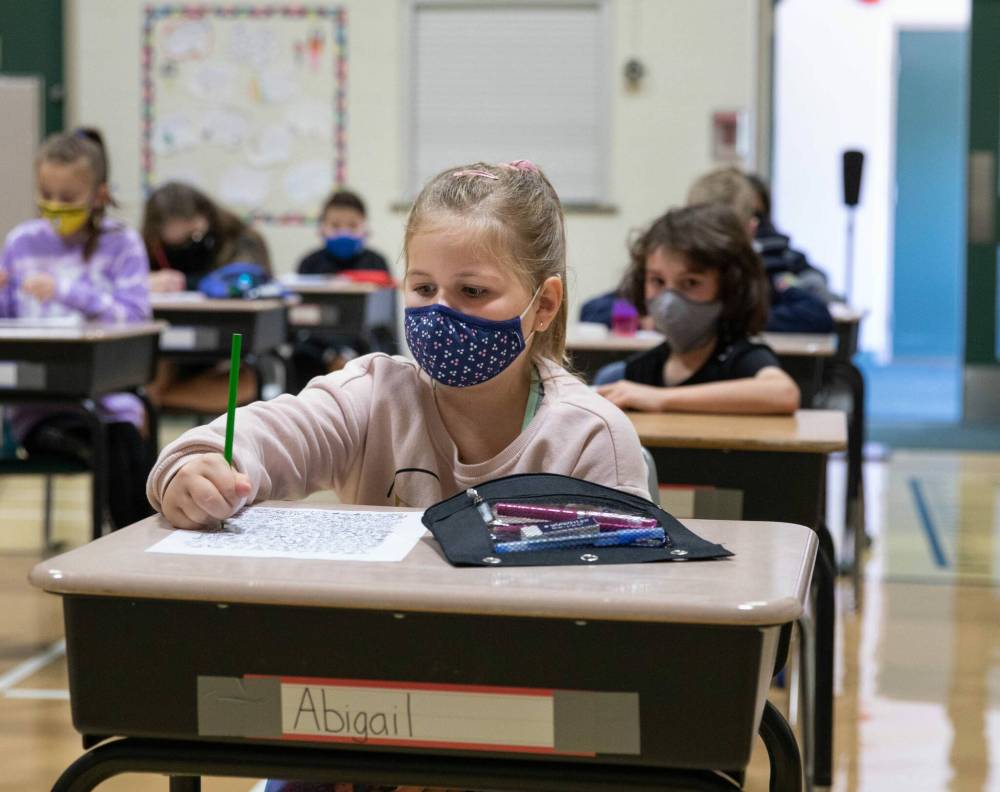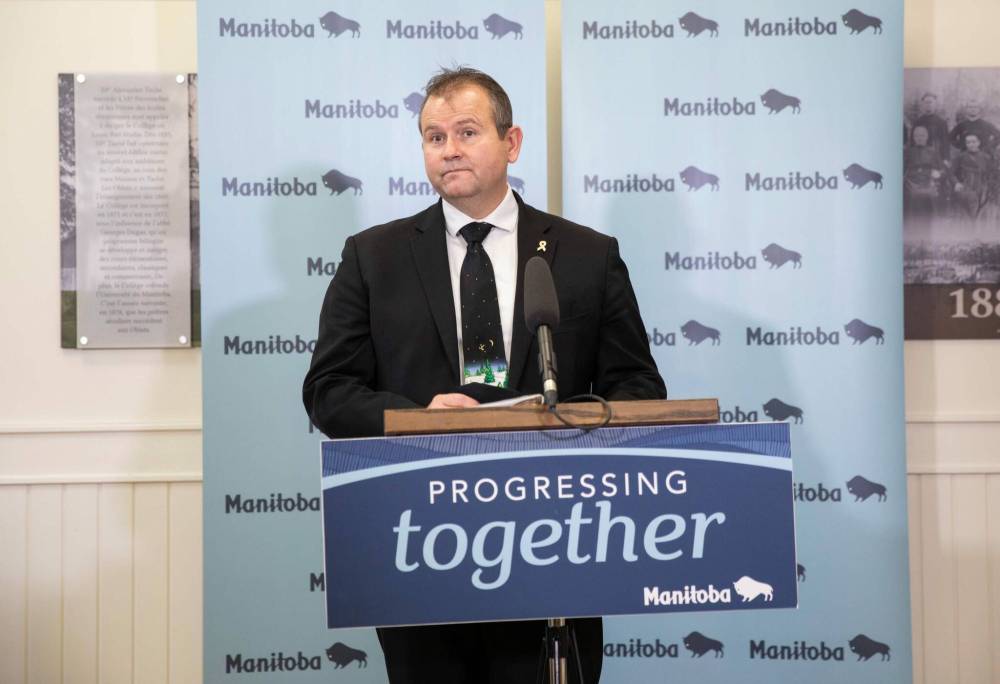Teachers call for mental-health lessons
Advertisement
Read this article for free:
or
Already have an account? Log in here »
To continue reading, please subscribe:
Monthly Digital Subscription
$0 for the first 4 weeks*
- Enjoy unlimited reading on winnipegfreepress.com
- Read the E-Edition, our digital replica newspaper
- Access News Break, our award-winning app
- Play interactive puzzles
*No charge for 4 weeks then price increases to the regular rate of $19.95 plus GST every four weeks. Offer available to new and qualified returning subscribers only. Cancel any time.
Monthly Digital Subscription
$4.99/week*
- Enjoy unlimited reading on winnipegfreepress.com
- Read the E-Edition, our digital replica newspaper
- Access News Break, our award-winning app
- Play interactive puzzles
*Billed as $19.95 plus GST every four weeks. Cancel any time.
To continue reading, please subscribe:
Add Free Press access to your Brandon Sun subscription for only an additional
$1 for the first 4 weeks*
*Your next subscription payment will increase by $1.00 and you will be charged $16.99 plus GST for four weeks. After four weeks, your payment will increase to $23.99 plus GST every four weeks.
Read unlimited articles for free today:
or
Already have an account? Log in here »
Hey there, time traveller!
This article was published 27/01/2022 (1444 days ago), so information in it may no longer be current.
The Manitoba Teachers’ Society is calling for a mental-health curriculum in schools as the pandemic takes a toll on students’ well-being.
The proposal is one of 26 recommendations made by the union ahead of the province’s education funding announcement for the next school year.

The union wants the province to develop comprehensive lessons on mental well-being and make sure mental-health services are easily accessible for students in K-12 schools, including adding school counsellors and clinicians and working to cut down wait times for student assessments.
“Let’s start talking about how to look after our mental health, so it’s not just about ensuring the health-care system is providing the supports to students, but it’s also to ensure that teachers have the tools to teach students about how to be healthy in all aspects of their life,” said society president James Bedford.

Many of the union’s recommendations echo ones released last year in the government-commissioned final report of the K-12 Education Review. The review commission didn’t specifically call for a provincewide mental-health curriculum, but it did recommend focusing on “mental well-being initiatives” for students, and setting up a mental health strategy for educators so they can properly learn to recognize when students have mental-health issues.
Many of this year’s funding recommendations, which haven’t been costed out, are the result of repeated attempts to reduce child poverty and address students’ basic needs in all areas of the province, making school resources more accessible even in remote communities.
The union wants a universal school meal program, free bus passes for students, and free menstrual products available in school washrooms.
“Another thing that the pandemic has highlighted is just the shortcomings in the system, and particularly the fact that there’s a huge difference between the city of Winnipeg and the rest of the province when it comes to things like mental-health supports for students,” Bedford said.
“Our students are struggling. They struggle with remote learning, but they struggle with being in person (and) learning when we’ve got a COVID variant that’s tearing through our province at the moment.”
Wayne Ewasko, who was named education minister last week, hasn’t signalled the government will implement the recommendations.

In a statement, he said the government accepted the teachers’ submission as well as feedback from other stakeholders.
“Our government continues to engage with all education partners to implement an equitable and sustainable funding model based on recommendations from K-12 Commission,” he stated.
A new public school funding formula would be a good thing, Bedford said, “so long as it is equitable across the province.”
He said education funding hasn’t kept pace with inflation or student population growth for years.
katie.may@winnipegfreepress.com
MTS Education Funding Submission

Katie May is a multimedia producer for the Free Press.
Our newsroom depends on a growing audience of readers to power our journalism. If you are not a paid reader, please consider becoming a subscriber.
Our newsroom depends on its audience of readers to power our journalism. Thank you for your support.
History
Updated on Friday, January 28, 2022 11:49 AM CST: Replaces PDF document with new version supplied by MTS.


